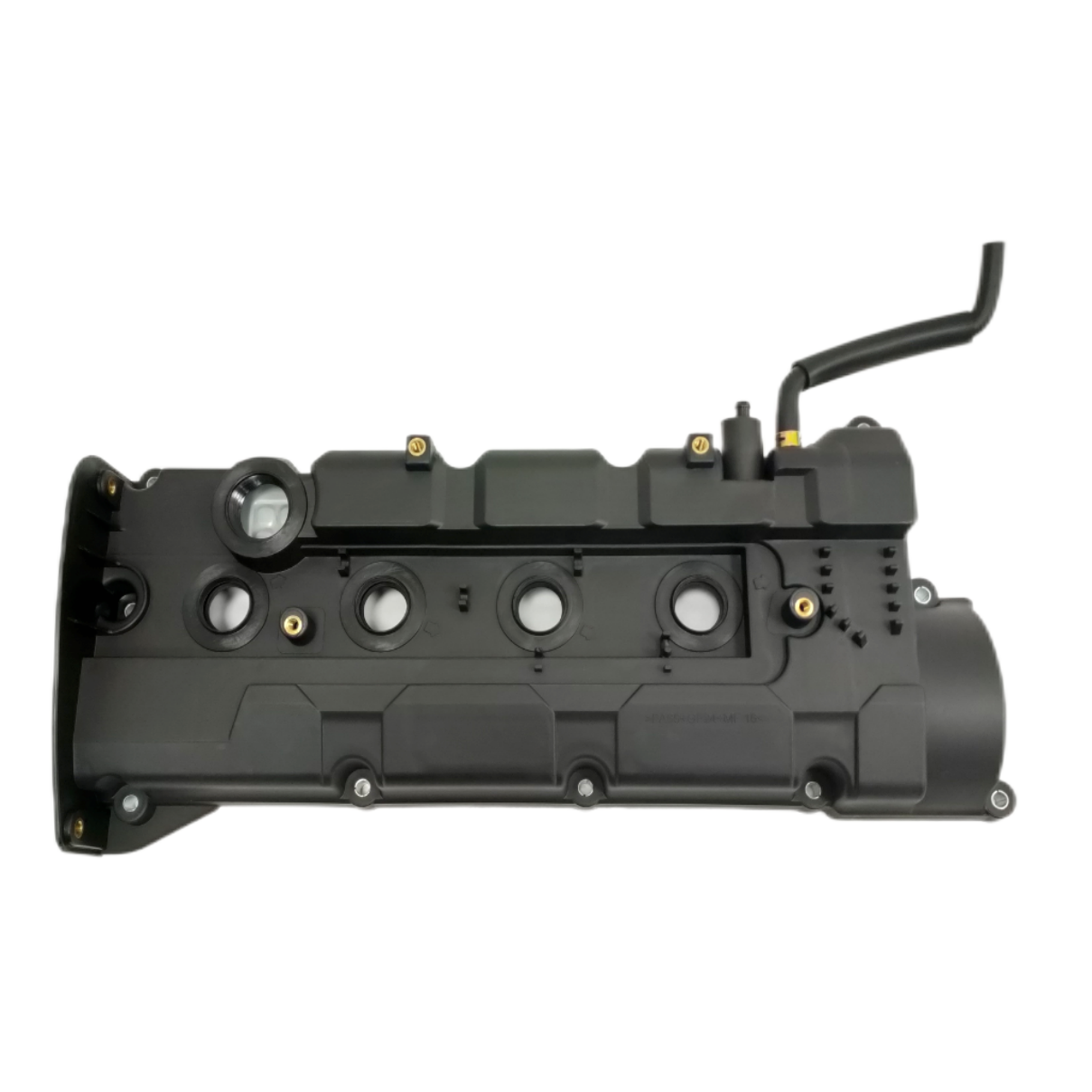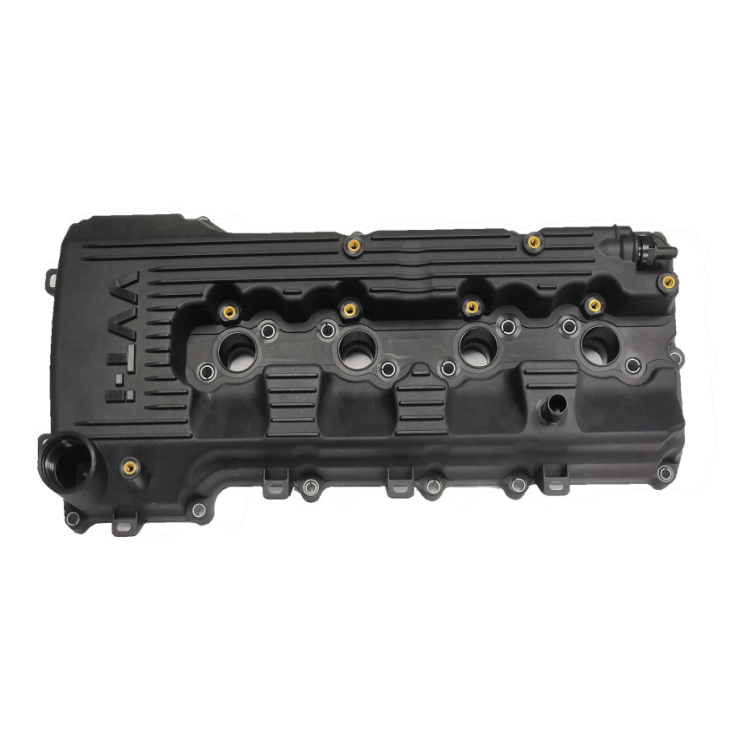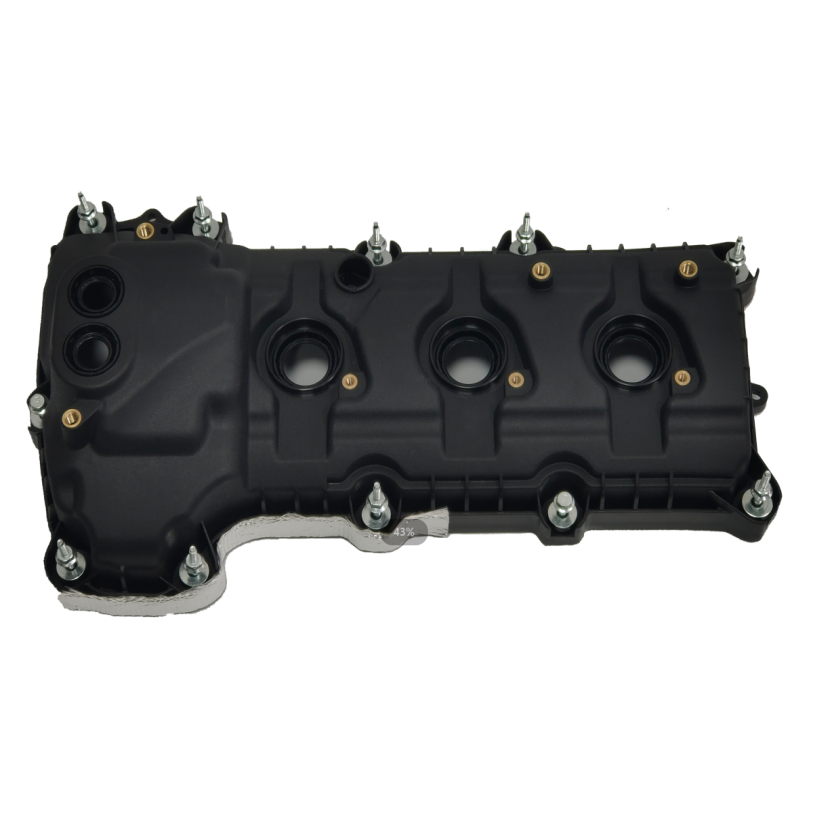Plastic Engine Valve Cover : Pros & Cons
Plastic engine valve cover is a common component in modern car. You may even see one on your engine right now. But what makes them different? We explore the advantages and disadvantages of plastic engine valve covers to help you make an informed choice for your car. Of course, the most important thing is to always choose a reliable engine valve cover manufacturer.
What is a Plastic Engine Valve Cover ?
What is an engine valve cover? And how to spot trouble? An engine valve cover is a protective cover used to protect the valve mechanism, installed on top of the cylinder head. Its main function is to seal engine oil and prevent dust and debris from entering. When engine oil leakage, ignition failure, odour, or low oil level occur, it may indicate a problem with the valve cover.
Plastic VS Aluminum Valve Cover: Key Differences
| Feature | Plastic Engine Valve Cover | Aluminum Engine Valve Cover |
|---|---|---|
| Material | High-strength composite polymer. | Cast aluminium or stamped steel. |
| Weight | Lightweight | Heavier |
| Cost | More affordable | More expensive |
| Heat Dissipation | Insulation | Good heat dissipation |
| Durability | May become brittle due to thermal cycling. | Highly durable. |
| Integrated Parts | Includes integrated PCV system and oil separator. | Separate and attached to the lid. |



View Engine Valve Cover Catalog
Benefits and Drawbacks of Plastic Engine Valve Covers
- Advantages :
- Lightweight
- Cost-effective
- Corrosion Resistance
- Integrated Design
- Thermal Insulation
- Disadvantages :
- Heat Degradation
- Prone To Rupture
- Possible Oil Leakage
- Short Gasket Life
Common Problems with Plastic Engine Valve Covers
Leakage is the most common issue, with plastic cracks or failed seals being the primary causes. You may notice the smell of burning oil or oil stains under the vehicle.
The PCV valve is typically integrated into the cover assembly. If the PCV valve fails, the entire cover assembly may need to be replaced. PCV valve failure can lead to unstable idle or engine knocking.
High temperatures and torque can cause cracks and deformation. Both of these conditions can compromise its sealing integrity.
The gasket may harden and become brittle, which typically leads to oil leaks. Replacing the gasket is a common repair method.
Why Plastic Engine Valve Cover
Plastic engine valve covers are fitted to many modern vehicles because they offer a good balance between cost and performance. If you want to maintain the original design of your vehicle, they are an excellent choice. However, it is important to note that they require regular maintenance to effectively prevent major faults from occurring.
Maintenance and Replacement Guide
| Maintenance Task | Description |
|---|---|
| Regular Inspections | Check the lid for cracks. Check for signs of oil leakage. |
| Proper Torque | Be sure to use a torque wrench, but do not overtighten the bolts. |
| Gasket Replacement | Replace the seal when there are no cracks or deformations. |
| Cooling System Check | Ensure that the engine cooling system is functioning properly. |
Choose a professional Engine Valve Cover Manufacturer who offers better reliability and customer support.
You May Also Want To Read:
Light and Strong What a Magnesium Engine Valve Cover Offers
When is Valve Cover Coating Necessary?
Contact Us Now
- RM901 No.22 Tangjiaqiao Road Wenzhou China
- +86 138 1973 9327
- sales@kstmetal.com
- https://www.autosparesupplier.com/
